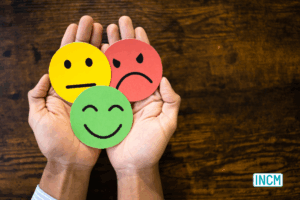 by Dale Hudson
by Dale Hudson
I grew up in an area of the country that has been called “Tornado Alley.” My great grandmother was once blown through the air by a tornado and thankfully survived. A tornado recently devastated the small town where my father is a pastor. The storm took the lives of some of his church members. As a child, I can remember crouching in fear as a tornado roared in the air above our house.
Fear and uncertainty obviously come when disaster strikes up close, but fear can also be felt from a disaster that happens somewhere else. I want to discuss how to talk to children when they find out about a disaster that has happened somewhere else. These are tips you can share with parents and leaders in your ministry.
Know where children are coming from. They tend to personalize things. They wonder if things they hear about could happen to them. Concerns about their house and belongings being destroyed or family being injured or killed may arise after hearing of disaster elsewhere.
It is important to be aware of kid’s different personality types. Some children are more prone to be sensitive and fearful. Others will not pay as much attention to what is going on. Knowing the child’s personality will enable you to more effectively help them.
Be sensitive to children who have previously been through a stressful situation such as divorce, death of a family member or disaster. They may need additional reassurance that disasters are rare events and they are very safe in their home.
We need to protect children from overexposure of the disaster through images on television, internet or other media sources.
Children will watch to see how you respond to the situation. If they sense you are stressed, fearful or anxious, they will pick up on it and mirror that response. Remain as calm as possible.
Allow for open conversations by asking questions and listening.
- What did you hear?
- Do you know what is going on?
- Why are you worried?
Under the age of seven, it is often best not to initiate a conversation about a disaster unless they become aware of it and bring it up. Answer questions calmly, clearly and honestly, but do not go into all the details.
Remember it is okay to say, “I don’t know.” Find answers to their questions together. Use it as a teachable moment.
Be prepared to answer the same questions several times. Children will ask questions several times when something is hard to understand or they need reassurance.
Let them express their feelings. Ask them to write down or draw pictures of what they are experiencing.
Pray with the child.
Share God’s promises with the child.
Comforting Children in Crisis by Group Publishing is an excellent resource. I have given each of our staff members one of these books. It is full of great advice and tips on how to minister to children in times such as a disaster. I use it constantly when helping children and families.
Next month’s Insight will discuss Talking to Children About Disaster Part Two. We will be focusing on what to do when children are affected personally and directly by a disaster.
Dale Hudson has been in Children’s Ministry for over twenty-two years. He is the Director of Children’s Ministry at Christ Fellowship Church in South Florida. Christ Fellowship is a multi-campus church with five campuses. Dale was recently named one of the top twenty influencers in Children’s Ministry by Children’s Ministry Magazine. He speaks at conferences across the country encouraging and equipping other Children’s Ministry leaders. He is the Leading Volunteers columnist for Children’s Ministry Magazine and has co-authored three books. Dale and his wife, Pamela, have been married for over twenty-two years and have two sons, Josh who is twenty, and Caleb who is seventeen. You can read more about Dale’s ministry journey at www.relevantchildrensministry.blogspot.comor meet up with him on facebook or twitter:@dalehudsoncm.





